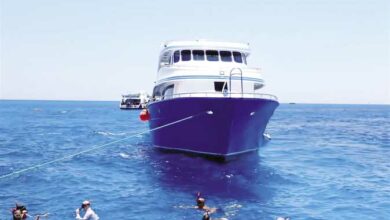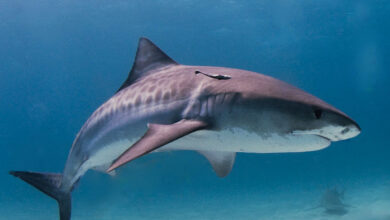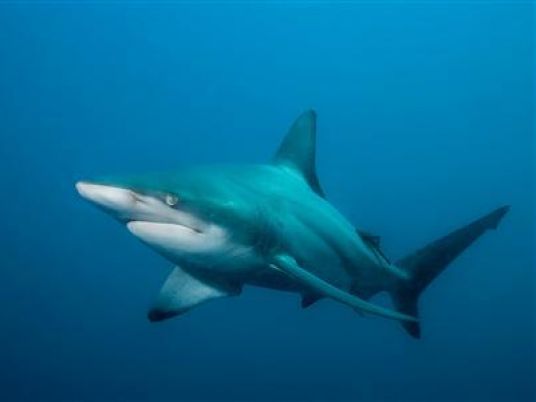Diving activities will resume in Sharm al-Sheikh, announced Egyptian Chamber of Diving and Water Sports (CDWS) on Monday. Despite the lifting of the ban, however, an environmental watchdog group claims that the government continues to hunt sharks.
“All diving activities can continue under the normal safety guidelines in place before the incidents began,” CDWS said in a statement to Al-Masry Al-Youm.
The bans have remained in place since the first shark attack occurred in the Egyptian Red Sea resort of Sharm al-Sheikh nearly three weeks ago. Nevertheless, a continued snorkeling ban and recent allegations of “government-orchestrated shark genocide” indicate that the situation has hardly returned to normal. Unconfirmed reports said that at least eight sharks were killed since the recent spate of attacks beginning 30 November which killed one and severely injured four in Sharm al-Sheikh’s waters.
The Hurghada Environmental Protection Agency (HEPCA) on Sunday released a statement contending that the Ras Mohammed Protectorate and the Marine Oceanography Institute of Alexandria have attempted to “wipe out local shark populations” following the attacks. The deliberate killing, they contend, contravenes a 2006 law prohibiting catching, killing and trading of sharks in Egypt’s waters. Director of the South Sinai Protectorate Mohamed Salem confirmed the capture of additional sharks since two sharks–one mako and one oceanic white-tip–were caught and killed immediately after the first attacks. He rejected labeling the government activity as "shark hunting."
“We are engaged in an internationally recognized process of ‘shark assessment’ that is necessary for the ongoing shark research intended for shark preservation and the protection of the area’s visitors,” he said.
Salem, who holds a PhD in marine biology, claimed the process entails assessing sharks’ innards and therefore necessitates shark deaths. “Unscientific, uncontrolled protection can have a reverse effect on the preservation of sharks and the protection of people,” he said. The methods employed to “assess and research” shark life is also, according to Salem, “in accordance with the internationally recognized Shark Control Program.”
Foreign programs aiming to prevent shark attacks typically involve implementing measures that limit shark-human interaction. Such is the case with Queensland which used mesh nets and baited hooks to isolate and capture around 7,000 sharks since 1999.
George Burgess, director of the International Shark Attack File and the leading foreign expert charged to investigate the attacks, asserted that limiting shark attacks by capturing and killing them is “an absolute waste of money.” Nevertheless, Burgess previously told Al-Masry Al-Youm that many methods adopted by international shark control programs such as installing mesh nets and isolating sharks typically have little effect.
Many diving institutions have protested the systematic killing, and CDWS released a statement last week confirming its opposition to killing sharks. Amr Aboulfat'h is running a petition called “Stop Shark Genocide in Sharm al-Sheikh.” He said that the diving community “fears orders to eliminate sharks in Sharm’s waters” as the systematic killing of sharks will have severe ecological effects on an area “that already suffers from overfishing, physical destruction, habitat degradation and pollution.” His organization is attempting to secure on-record eyewitness accounts of the shark killing that he claimed included a nurse shark, a shark species not identified in any of the attacks.
In the face of allegations that the government seeks to eliminate sharks, Salem adamantly denies violating laws. “We are doing nothing illegal and are not interested in wiping out sharks,” he asserted. “I don’t have exact figures of how many sharks were assessed,” he said.
“However, if it is true that only eight sharks were killed, how much of an overall effect can that have in relation to 200,000 killed worldwide, mostly for commercial purposes? We’re doing everything scientifically, and the numbers indicate our waters have a surplus of sharks.”
Most scientists interviewed by Al-Masry Al-Youm rejected the idea that sharks naturally attack humans. “The sea is a part of nature, and the sharks exist in it. Going into the sea has its inherent risks, but these attacks were caused by external factors, most probably human,” Burgess explained.




